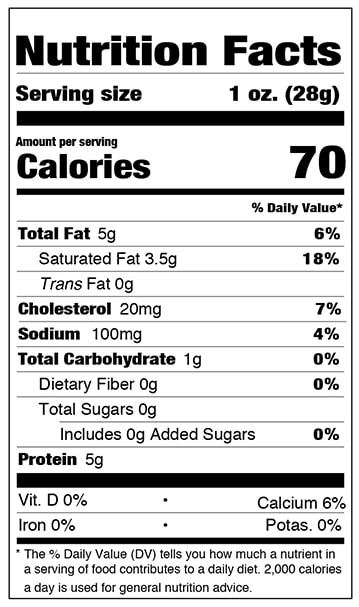Mozzarella cheese is a popular choice for pizza, pasta, and salads. It is a good source of protein and calcium, but it is also high in saturated fat and sodium. One ounce of mozzarella cheese contains around 85 calories, 6 grams of protein, 6 grams of fat, and 1 gram of carbohydrates. It is important to consume mozzarella cheese in moderation to avoid consuming too many calories and unhealthy fats.
When choosing mozzarella cheese, opt for low-fat or part-skim varieties to reduce your intake of saturated fat. You can also look for mozzarella cheese made from organic or grass-fed milk for a higher quality product.
Nutritional Information Mozzarella Cheese
Vitamins and Minerals
In addition to protein and calcium, mozzarella cheese also provides important vitamins and minerals. It is a good source of vitamin A, which is essential for healthy vision, skin, and immune function. Mozzarella cheese also contains vitamin B12, which is important for nerve function and red blood cell production.
When consuming mozzarella cheese, be mindful of portion sizes to avoid consuming too much sodium. Excess sodium intake can lead to high blood pressure and other health issues. Pairing mozzarella cheese with fresh vegetables or whole grains can help balance out your meal and provide additional nutrients.
Conclusion
Overall, mozzarella cheese can be a nutritious addition to your diet when consumed in moderation. Pay attention to the nutritional information on the packaging and choose healthier options when possible. By incorporating mozzarella cheese into a balanced diet, you can enjoy its rich flavor while still maintaining a healthy lifestyle.
